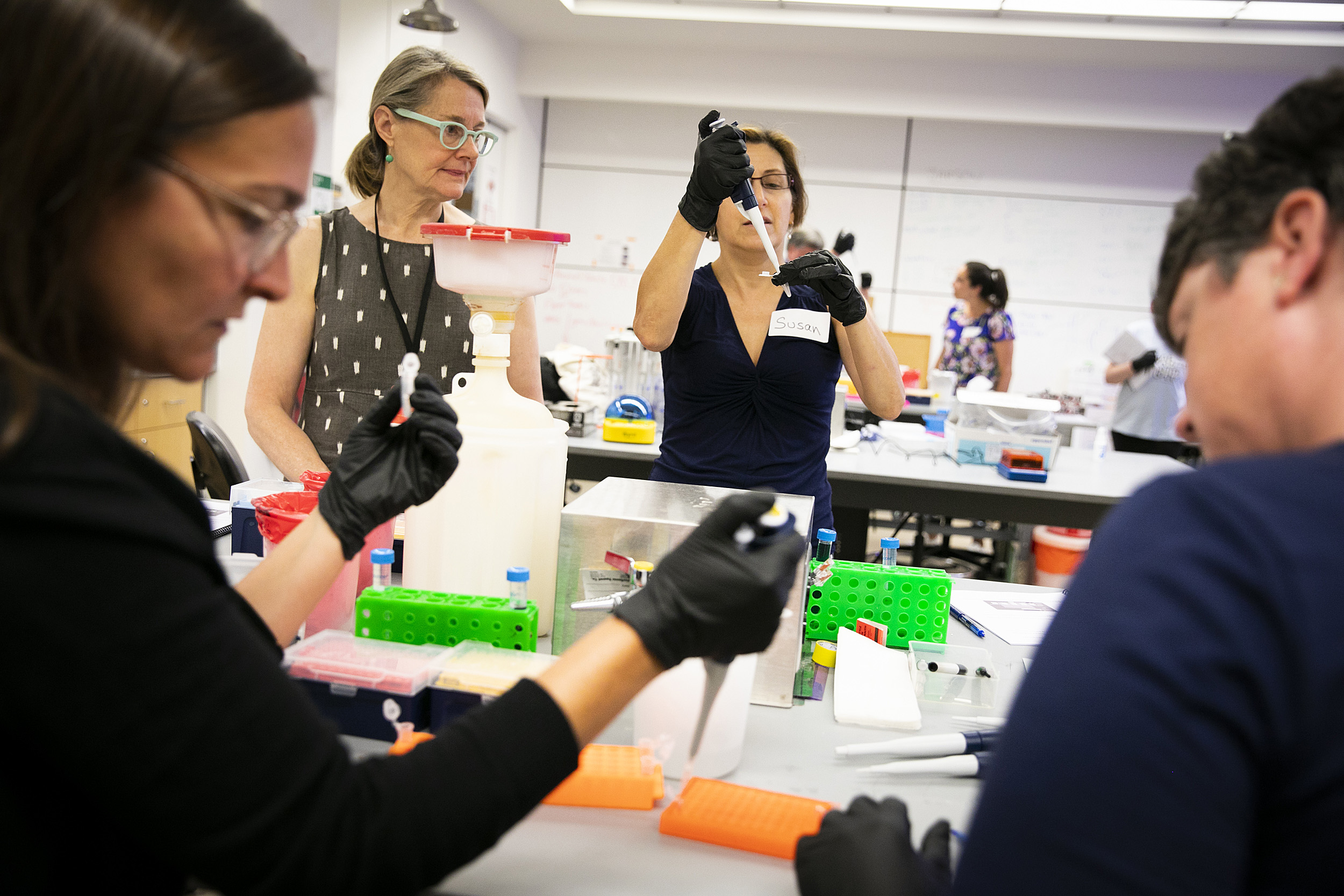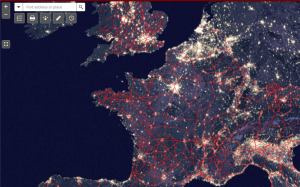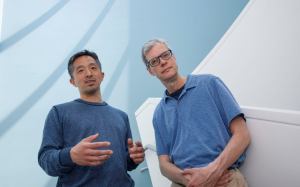
Mansi Srivastava led a three-day workshop for Boston middle school teachers about teaching evolution with molecular biology. Susan Lewis ’88 (center) uses a pipette during a workshop activity.
Stephanie Mitchell/Harvard Staff Photographer
Giving teachers a DNA refresher
Mansi Srivastava offers middle school educators lessons on evolution
Middle school teachers became students in Mansi Srivastava’s lab earlier this month, as the assistant professor of organismic and evolutionary biology led an educational workshop on DNA and evolution titled “Real Science: Untangling Evolutionary Trees.” Srivastava, in collaboration with students at the Graduate School of Arts and Sciences and the Harvard Museum of Natural History education office, gave lessons and hands-on lab work in the three days of classes with funding from her National Science Foundation’s CAREER award.
Monique Harrington, a middle school substitute teacher in the Needham Public Schools, found the material “incredibly valuable and relevant.”
“I was very impressed with the quick understanding of DNA sequencing that I was able to acquire. The attention to detail and the multistep learning process involved in lab work was very interesting and rewarding,” she said. “The work of drawing trees and finding connections between all life forms would also support tactile learning styles that integrate art and visual mathematical concepts. This opportunity would transform classroom teaching into a much-needed multidisciplinary approach.”
Srivastava said she sought out middle school educators “to bring these experiences to [the students] before they make up their minds.” She noted that the “equipment needed to produce the experiments has become more affordable and portable,” making evolution — a topic sometimes hard to make tangible — feel more accessible.
“Content-wise, students do learn about DNA in their curriculum already, but this workshop allows them to work with it directly,” she said. “Scientists study the world in an experimental framework — we generate hypotheses about something, do an experiment to test it, and then we assess whether the results support our hypothesis or reject it. Science textbooks teach students about the results or inferences we make, but don’t always communicate how we got to the answer. This workshop included hands-on experience in the doing of science.”






